I spent the first week of this month in Germany, speaking to students, journalists, diplomats, elected officials, and many German citizens (as well as some American expats) about the current state of American politics.
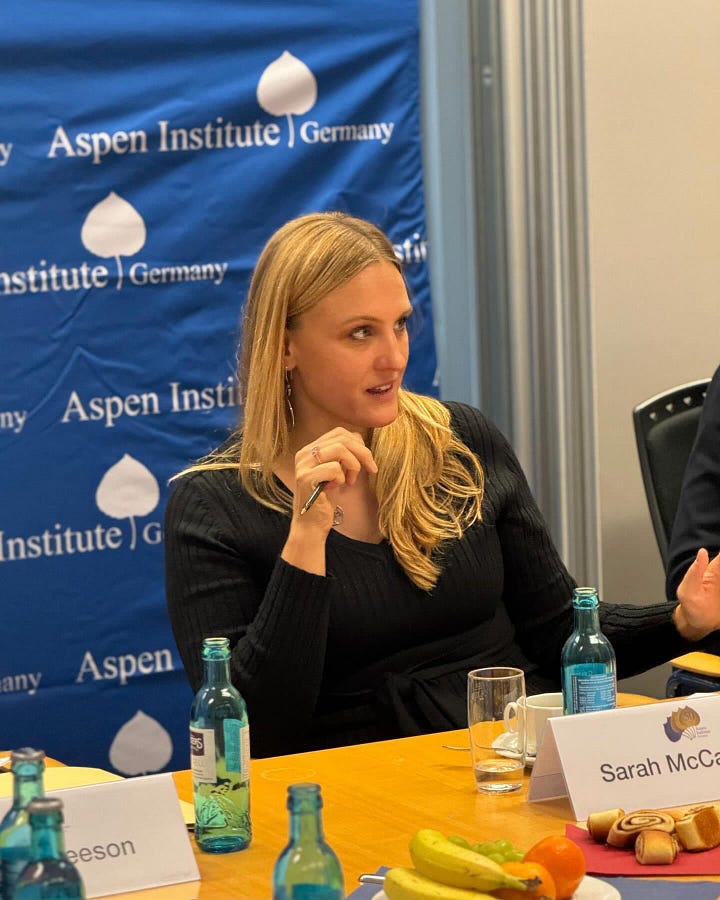
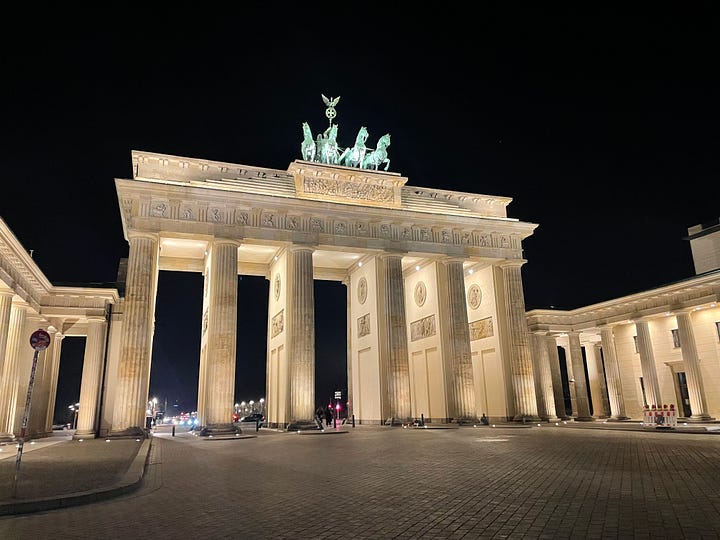
In city after city, Germans of all ages wanted to know: how did Donald Trump get elected President again, and how will his second term shape relationships between America and Europe, and the rest of the world?
To explain why, I pointed to my reporting over many years on the continued and persistent strength of Trump’s support among his white evangelical base, and to a new phenomenon: Trump’s growth among working-class Americans, including many nonwhite voters.
I discussed what I heard during my reporting trip to a Latino evangelical church in Pennsylvania, the weekend after the election: in short, many of the same concerns I’d heard from white Trump supporters for years, about cultural change, economic anxiety, and illegal immigration.
To answer the question of what’s next, is more difficult.
I said many times during these talks that while I can’t predict the future, I can share what my colleagues and I have learned from covering Trump’s political career for nearly a decade now, and especially the 2024 campaign. We know that Trump has talked repeatedly about implementing a mass deportation of undocumented immigrants, beginning with those who’ve been convicted of crimes. Another major concern for many Europeans is the future of NATO and U.S. involvement in Ukraine. Here again, we know that Trump has criticized the level of U.S. spending on Ukraine’s behalf, and promised to end the conflict without providing many details.
But being in Europe, it was interesting to see firsthand how Americans are perceived. In addition to the obvious questions about Trump, there were questions about our way of life. A high school student in Nuremberg asked me, as a mother, aren’t you worried school shootings? What could I say, as a mother and a journalist who has covered too many of these tragedies, but yes, we all are. Just yesterday, there was another deadly school shooting, this time at a Christian school in Wisconsin.
The same student also noted Germans have access to a national healthcare system; don’t Americans want something similar, she asked? Yes, I told her, many do - and briefly recapped decades of debate over this from the Clinton administration to the present.
For this trip, I was honored to be a guest of the Aspen Institute, which set up meetings and speeches for me with groups in Berlin, Leipzig, Coburg, Nuremberg, and Stuttgart. My husband came along, and we ended the trip by visiting some friends.
Our friends’ very bright, very-fluent in English seven-year-old gave me his take: “The President of America says what happens in America, and also in other lands, because America is the biggest land. It’s an important land.”
“The President of America says what happens in America, and also in other lands, because America is the biggest land. It’s an important land.”
It may not be the biggest land, per se, but it certainly looms large. And it’s certainly a massive responsibility that we have as Americans.
Lights in the darkness
I’m so grateful that the holiday season comes (by no accident, from what I know of history) at the darkest time of the year. Germany’s legendary Christmas markets were absolutely beautiful, and we brought home as many trinkets as we could fit it our suitcases.
In Esslingen, a beautiful town not far from Stuttgart with an amazing amount of well-preserved medieval architecture, we toured a church built well before the Protestant Reformation.
As the evening fell, we noticed a sign for an advent service. My husband asked if I wanted to pop in. In our interfaith marriage, I’m always trying to sensitively navigate our differences - and particularly aware of the ugly history of oppression of the Jewish people by larger groups and religions. So as the Christian spouse, I try to be especially sensitive about noticing, and honoring, the boundaries of my husband’s Judaism. So it meant a lot that he asked.
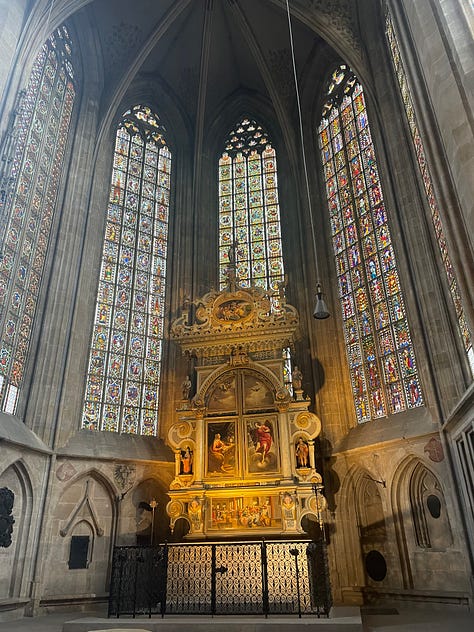
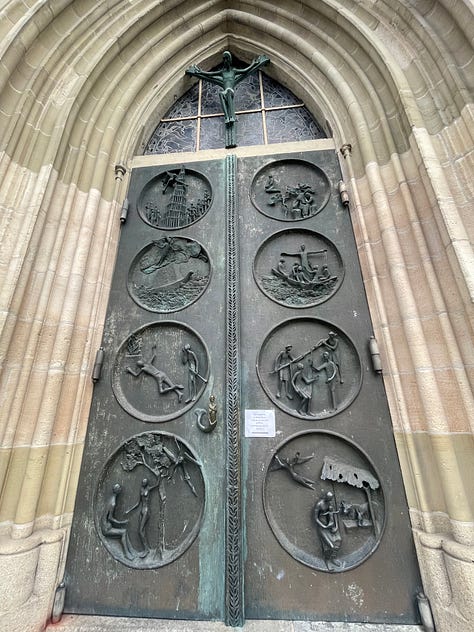
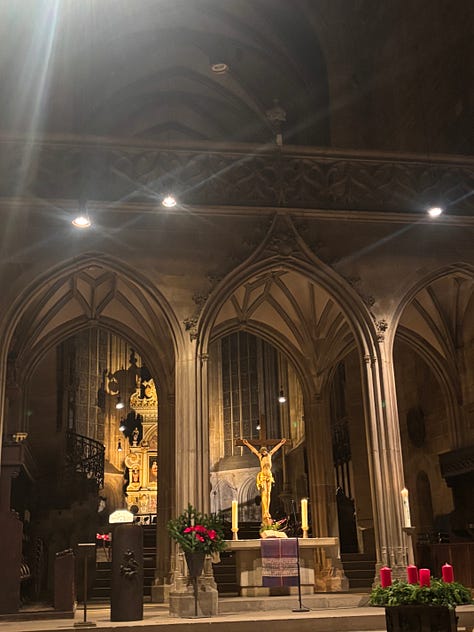
We entered quietly, choosing a pew in the middle. The brief service was, of course, in German and neither of us understand much - until the end, when I began to sense a familiar rhythm: the cadence of the Lord’s Prayer.
And then, she closed with another unmistakable cadence: that of the three-fold blessing, a prayer the Christian tradition has adopted from Judaism and which, according to the book of Numbers, God gave to Moses to pray over his people:
The Lord bless thee, and keep thee:
The Lord make his face shine upon thee, and be gracious unto thee:
The Lord lift up his countenance upon thee, and give thee peace.
The day after we landed back in the U.S., we went to work decorating our home for the holidays. The living room is full of light now, both from our string of Chanukah lights and the Christmas tree.
That tree connects me with the best parts of my childhood, and now, my children’s. As I hung up an ornament my older son made years ago from an elementary-school photo, I tried not to think about the fact that this is his last Christmas of high school. I made a sad face, and he looked back at me - with that face that looks like a boy version of mine - grotesquely mimicking my frown, and we laughed.
And we continued the traditions for another year.



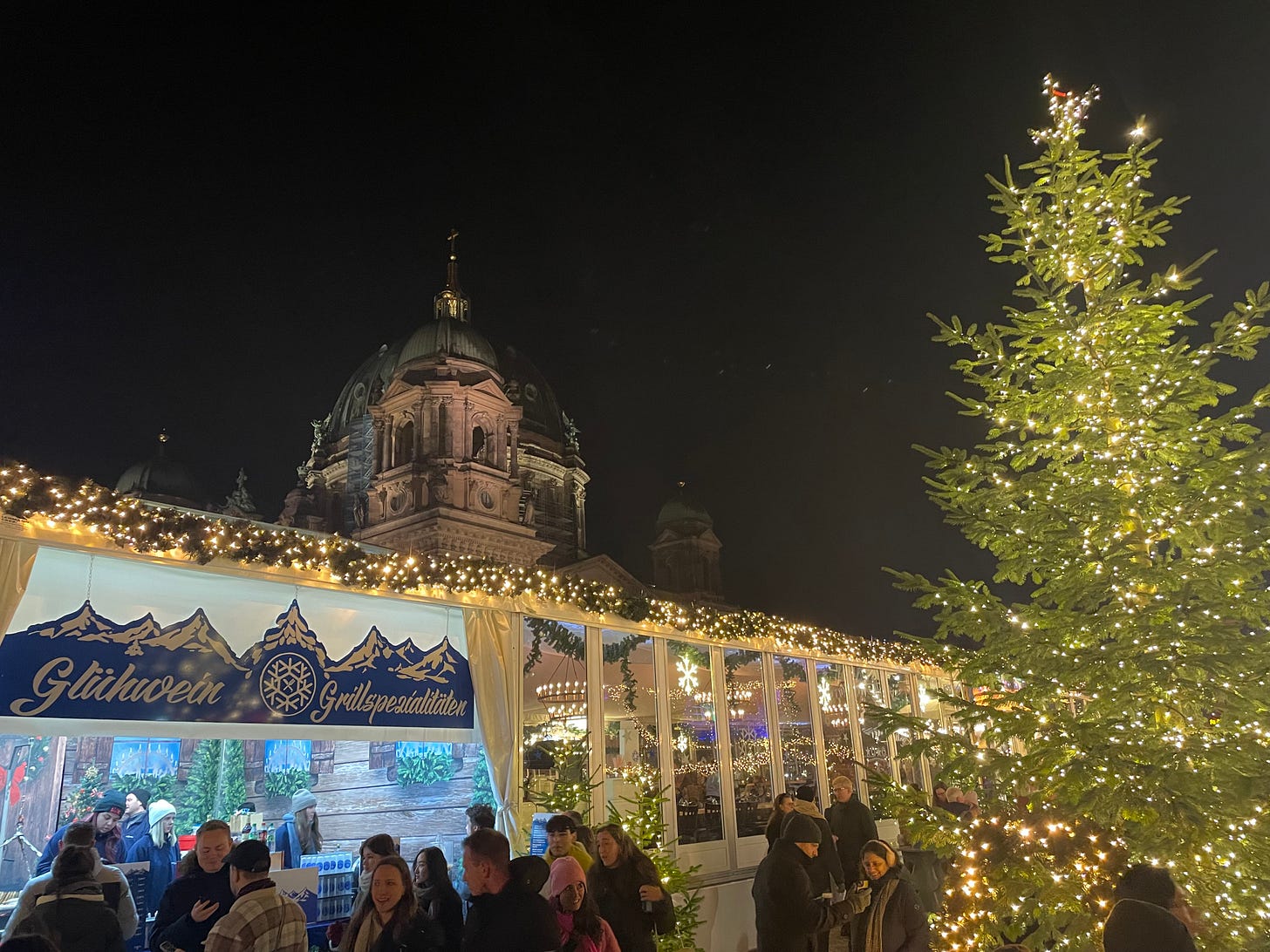
Beautiful inter-weaving of professional journalism and how it resonated with your personal observations and experiences. ❤️ 🕎 🎄
It would be interesting to hear German impressions about the parallels between MAGA and their AfD party that seems to be growing. As an outside observer, they seem to share the same nationalist and xenophobic sentiments, but I don’t know if they share other MAGA elements like misogyny or theocratic and fascist impulses.